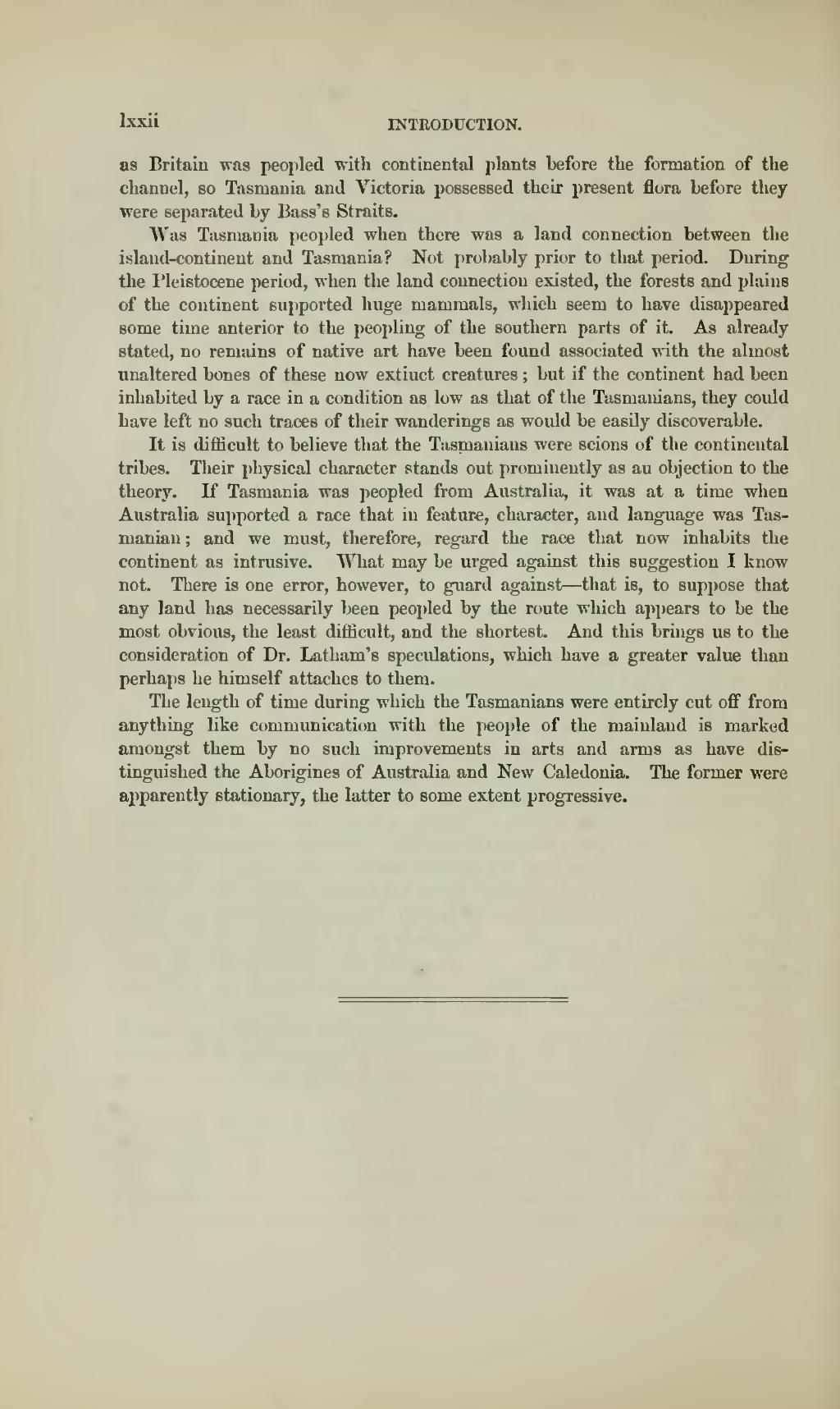as Britain was peopled with continental plants before the formation of the channel, so Tasmania and Victoria possessed their present flora before they were separated by Bass's Straits.
Was Tasmania peopled when there was a land connection between the island-continent and Tasmania? Not probably prior to that period. During the Pleistocene period, when the land connection existed, the forests and plains of the continent supported huge mammals, which seem to have disappeared some time anterior to the peopling of the southern parts of it. As already stated, no remains of native art have been found associated with the almost unaltered bones of these now extinct creatures; but if the continent had been inhabited by a race in a condition as low as that of the Tasmanians, they could have left no such traces of their wanderings as would be easily discoverable.
It is difficult to believe that the Tasmanians were scions of the continental tribes. Their physical character stands out prominently as an objection to the theory. If Tasmania was peopled from Australia, it was at a time when Australia supported a race that in feature, character, and language was Tasmanian; and we must, therefore, regard the race that now inhabits the continent as intrusive. "What may be urged against this suggestion I know not. There is one error, however, to guard against—that is, to suppose that any land has necessarily been peopled by the route which appears to be the most obvious, the least difficult, and the shortest. And this brings us to the consideration of Dr. Latham's speculations, which have a greater value than perhaps he himself attaches to them.
The length of time during which the Tasmanians were entirely cut off from anything like communication with the people of the mainland is marked amongst them by no such improvements in arts and arms as have distinguished the Aborigines of Australia and New Caledonia. The former were apparently stationary, the latter to some extent progressive.

